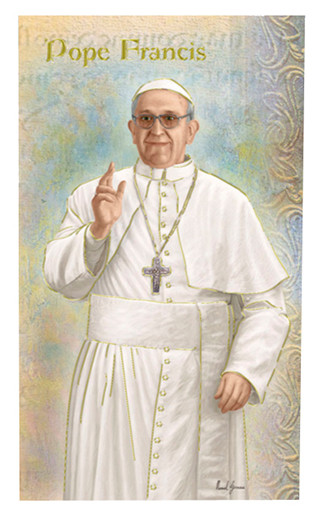Discover the fascinating history of Pope Francis' birthplace in Argentina, a land rich with culture and tradition. This South American country has been the cradle of many influential figures, and Pope Francis stands out as one of its most prominent sons. His journey from Buenos Aires to becoming the leader of the Roman Catholic Church is nothing short of remarkable.
Buenos Aires, the vibrant capital city of Argentina, serves as the backdrop to Pope Francis' early life. Known for its European architecture, tango music, and passionate people, this city played a significant role in shaping the man who would later become the first pope from the Americas. Dive into the story of how his roots in Argentina influenced his global vision and leadership style.
Pope Francis was born in Buenos Aires on December 17, 1936, as Jorge Mario Bergoglio, the son of Italian immigrants. His father, Mario, worked as an accountant for the railways, while his mother contributed significantly to raising him and his siblings. The family's background instilled in him values that would guide his spiritual journey throughout his life. His upbringing amidst diverse cultures within Buenos Aires helped forge his inclusive approach to religion and humanity.
Early Life and Family
Growing up in Buenos Aires, young Jorge Mario Bergoglio experienced firsthand the challenges faced by immigrant families in Argentina during the mid-20th century. His parents' hard work ethic and dedication inspired him deeply. Their influence encouraged him to pursue education and later theological studies, setting the stage for his future career in the church.
His childhood home in Flores, a neighborhood in Buenos Aires, remains a point of interest for visitors curious about the origins of this humble yet impactful religious leader. The area reflects much of what shaped his character - resilience, compassion, and respect for diversity.
This early exposure to multiculturalism and socio-economic struggles laid the foundation for Pope Francis' empathetic nature and commitment to addressing issues affecting marginalized communities worldwide.
Journey to Papacy
Born in Argentina in 1936, Jorge Mario Bergoglio assumed the papacy in 2013 following Benedict XVI's resignation. As the Jesuit Archbishop of Buenos Aires, he brought unique perspectives to Vatican leadership. His election marked a historic moment as he became the first pope from both the Western Hemisphere and South America.
Pope Francis quickly distinguished himself through his progressive stances on social justice, environmental protection, and interfaith dialogue. He championed causes such as reducing poverty, tackling climate change, and fostering peace among different faiths. These priorities resonated globally, earning widespread admiration.
Throughout his tenure, he remained committed to reforming the Catholic Church's structure and operations, advocating transparency and accountability. His efforts aimed at healing divisions within Christianity and promoting unity across religions further solidified his legacy.
Vatican Leadership Transition
An Irish-born American cardinal, Kevin Farrell, was appointed camerlengo by Pope Francis. This critical role involved overseeing the administration of the Holy See during periods when there was no reigning pope. Cardinal Farrell's selection highlighted Pope Francis' trust in capable leaders to manage transitions smoothly.
The choice underscored the importance of continuity and stability within the Vatican hierarchy. By entrusting key responsibilities to trusted allies like Cardinal Farrell, Pope Francis ensured that essential functions continued uninterrupted even amid leadership changes.
This strategic appointment demonstrated foresight and planning on behalf of Pope Francis, ensuring effective governance during sensitive times for the Catholic Church.
Cultural Pilgrimages
Pope Francis visited the Solmoe Sanctuary located in Dangjin, Chungcheongnam-do province, South Korea, on August 15. This site holds immense significance as the birthplace of St. Andrew Kim Taegon, Korea's first native Catholic priest. The visit symbolized recognition of Korean Catholicism's historical contributions.
During his pilgrimage, Pope Francis paid homage to martyrs whose sacrifices strengthened Catholic faith in Asia. Such visits reinforced connections between global Catholic communities and honored their shared heritage.
These cultural exchanges exemplified Pope Francis' dedication to celebrating diverse traditions within the universal Church, strengthening bonds among faithful worldwide.
Legacy Beyond Borders
Pope Francis passed away on April 21, 2025, leaving behind a profound impact on the Catholic Church and broader society. Born in Buenos Aires in 1936, his life bridged continents and cultures, inspiring millions with his message of hope and reconciliation.
His groundbreaking encyclical Laudato si' addressed urgent ecological concerns, urging collective action against climate crises. Additionally, his outreach towards victims of clergy abuse signaled unprecedented acknowledgment and accountability within the Church.
As the first pope from the Americas and the Jesuit order, Pope Francis redefined modern papal leadership. His emphasis on humility, service, and inclusivity continues to resonate globally, shaping future generations' understanding of faith and humanity.
Special Visits
Pope Francis made an unexpected trip to Greccio, Italy, where Saint Francis constructed the initial nativity scene centuries ago. This gesture honored the origins of Christmas traditions cherished universally.
By visiting Greccio, Pope Francis connected personally with the spiritual roots of Christianity, emphasizing simplicity and devotion central to Nativity celebrations. His presence evoked joyous memories tied to these sacred observances.
This spontaneous act showcased Pope Francis' genuine appreciation for preserving time-honored customs while adapting them to contemporary contexts, reinforcing timeless values embraced by people everywhere.

